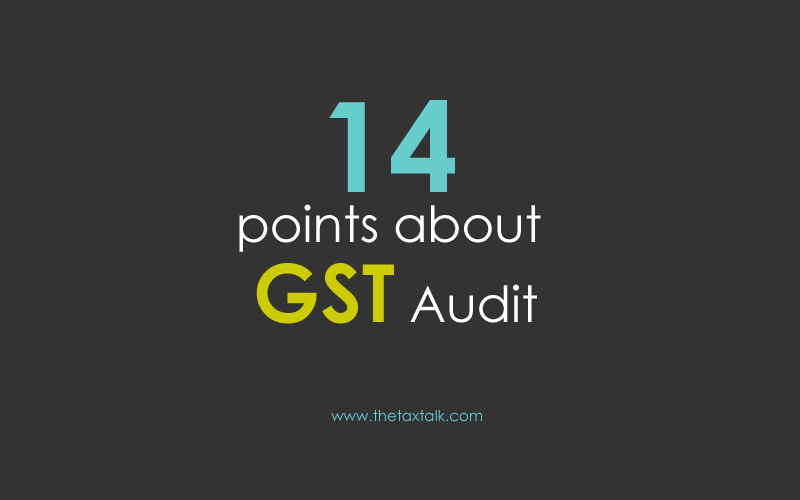![]()
1. Audit can be done by a Chartered Accountant or Cost Accountant only. Advocate and GST Practitioner are not authorised for GST Audit.
2. Audit is require when aggregate turnover exceed Rs. 2 crores during a financial year.
3. Financial year for GST audit is the period of 1-April-2017 to 31-March-2018.
4. “Turnover” should be considered at PAN level including inter-state stock/branch transfers.
5. Exempt turnover is also required to be considered for calculating limit of Rs. 2 crores
6. Turnover of alcoholic liquor for human consumption is exempt turnover and to be considered in calculating limit of Rs. 2 crores.
7. For multiple GSTIN holders, audit is required to be done for GSTIN which crosses threshold aggregate turnover limit of Rs. 2 crores
8. It is not mandatory for a Chartered Accountant to be registered as GST practitioner for GST audit .
9. Audited financial statements, audit report required to be filed with reconciliation statement (GSTR 9C)
10. Last date for GST audit is 31st March, 2019 for FY 2017-18
11. Rs. 200 per day upto maximum of Rs 0.5% of turnover, will be payable for failure to file annual return and audit
12. No provision of revision of annual return
13. Internal auditor cannot be the GST auditor as GST Audit is a statutory audit for which independentness is must.
14. It is the duty of registered person only to file audit report, not of CA as in the case of tax audit report now u/s 44AA of the Income Tax Act-1961.

